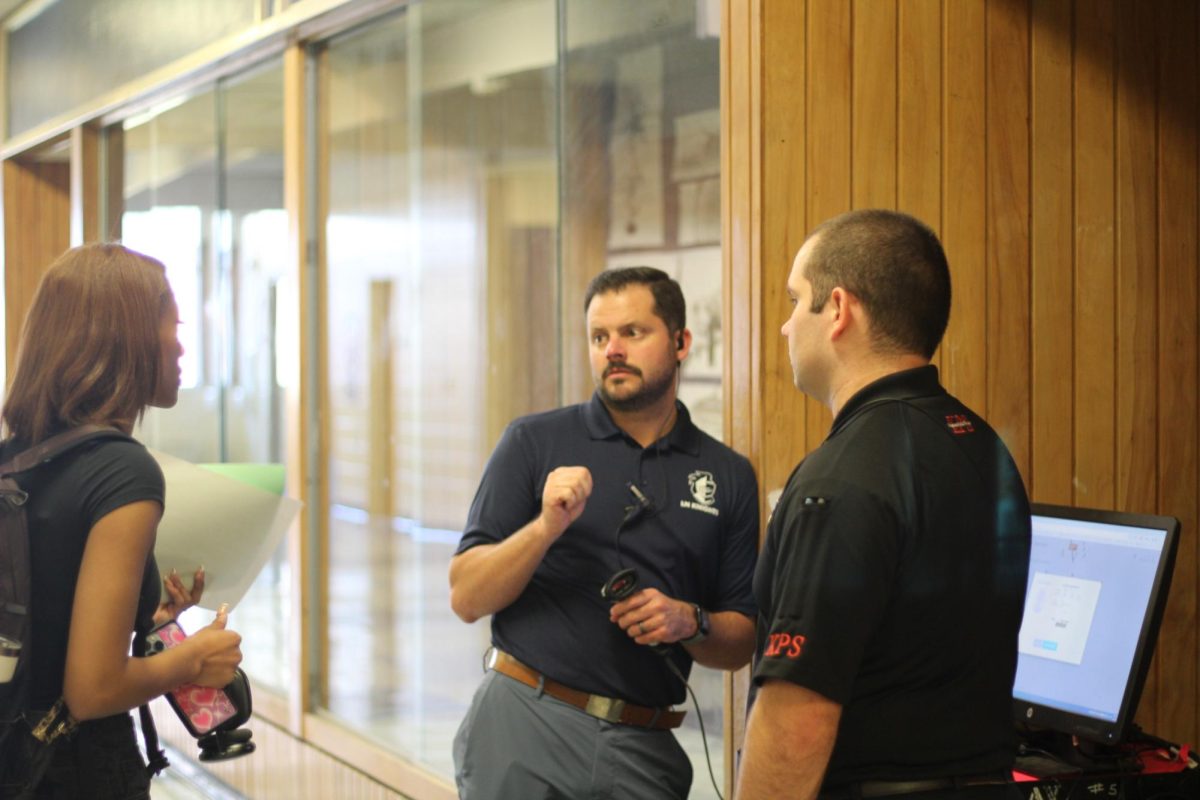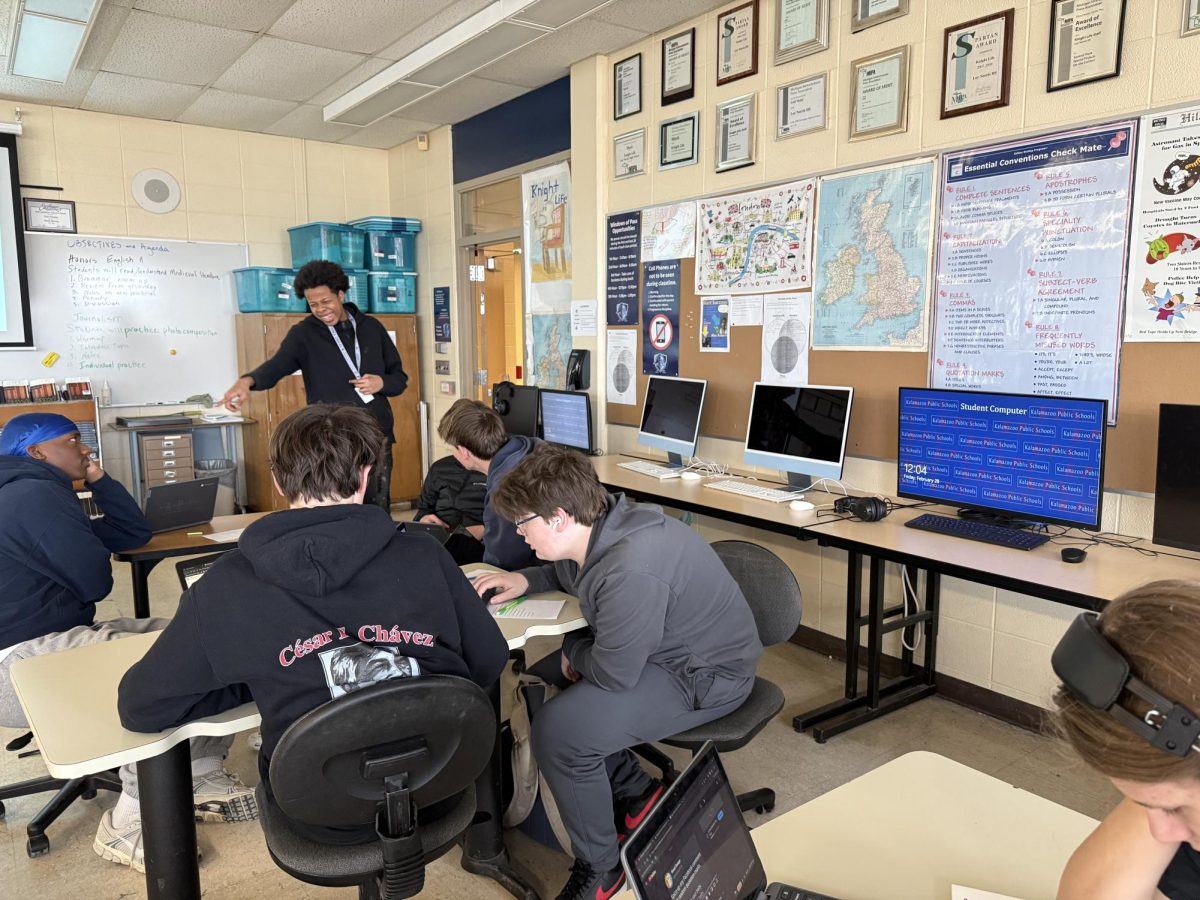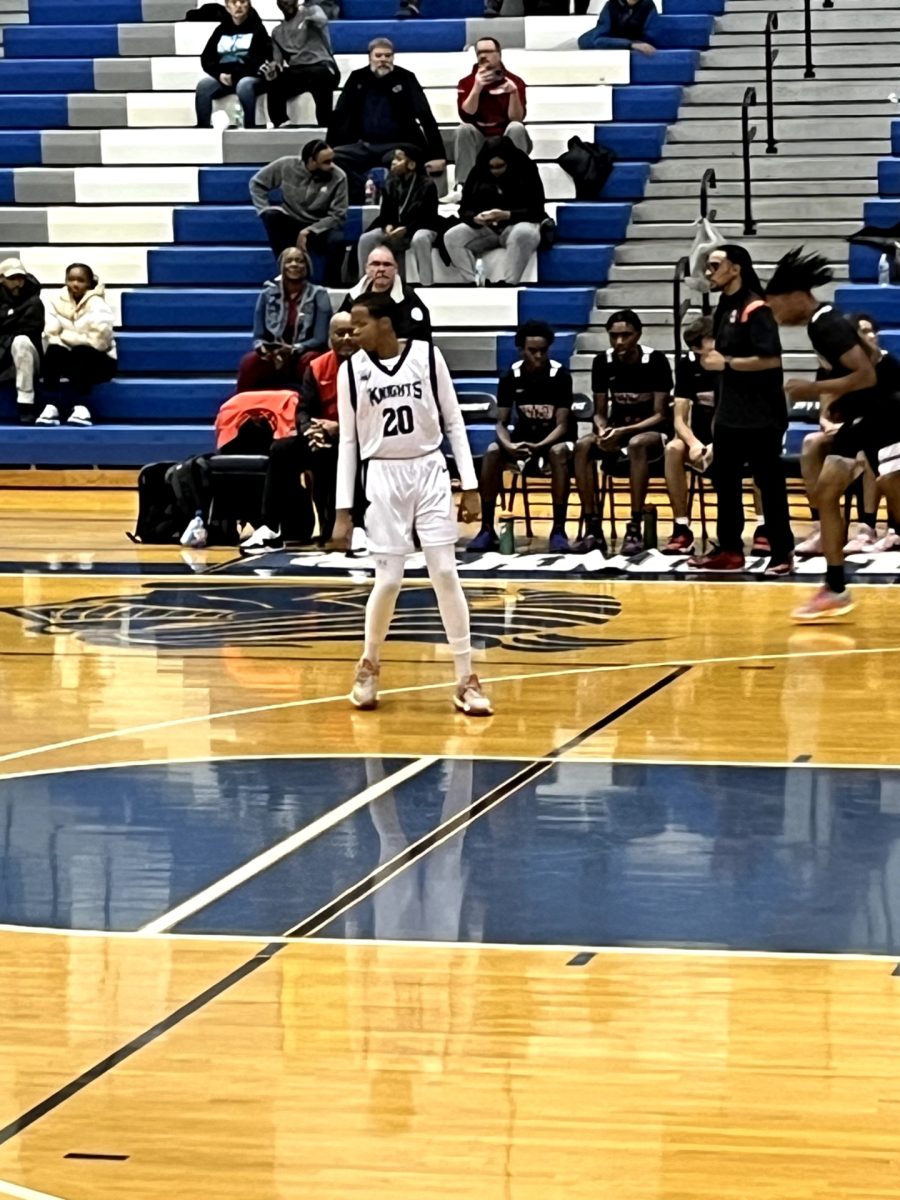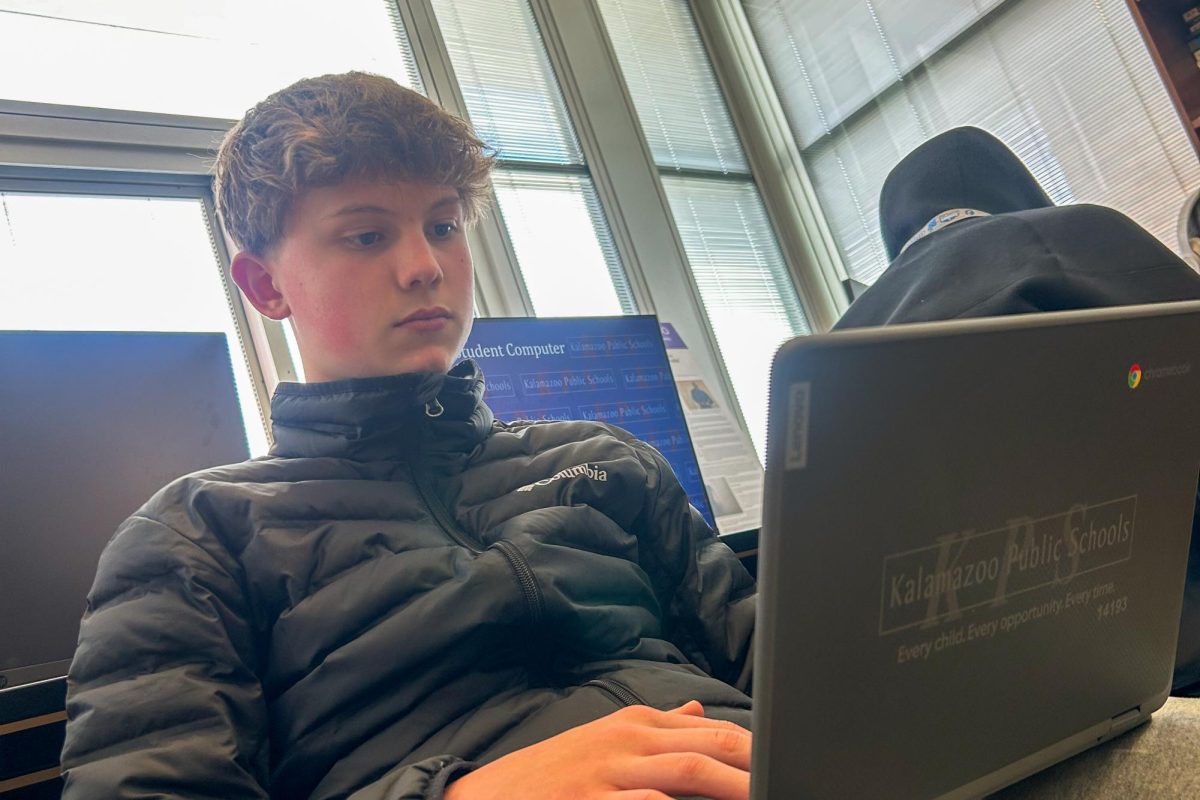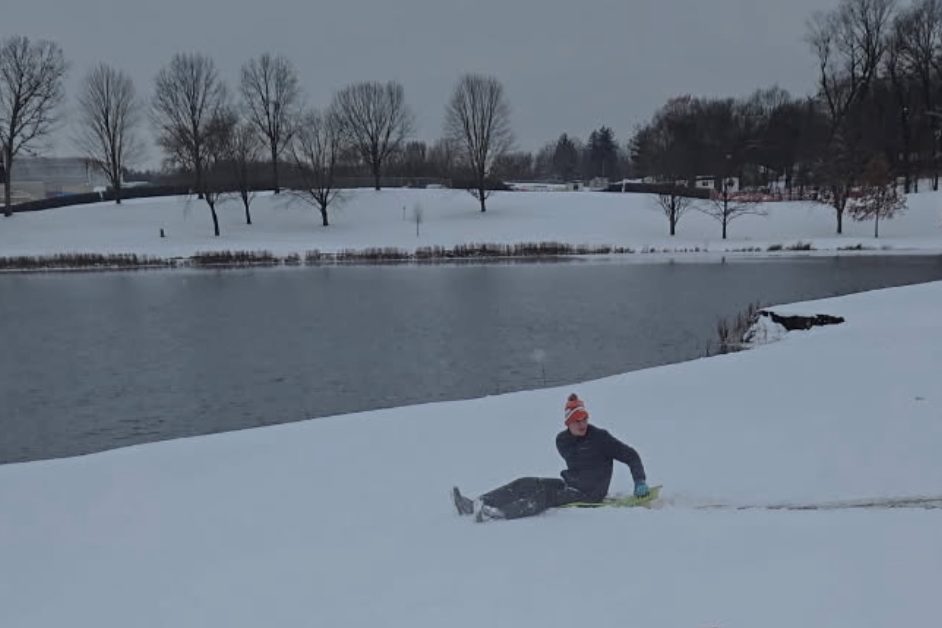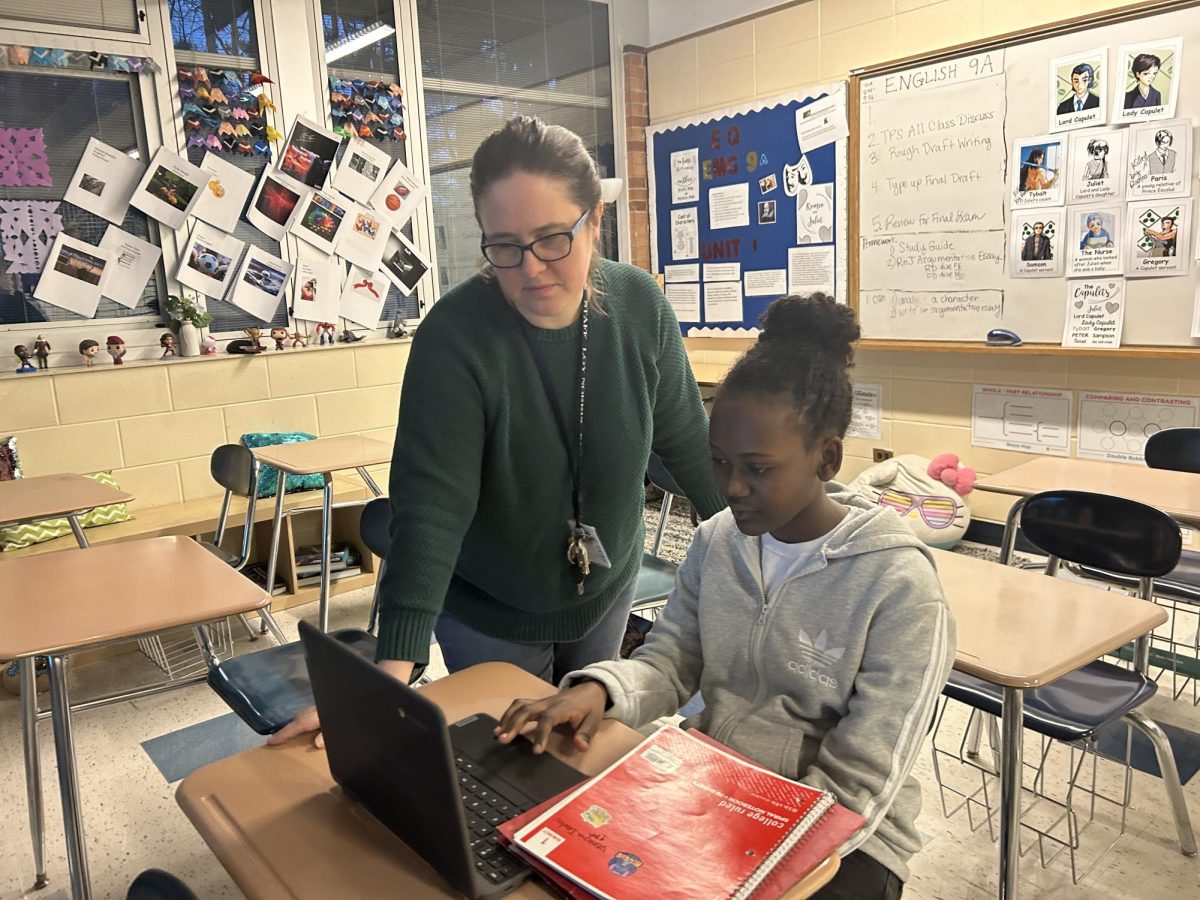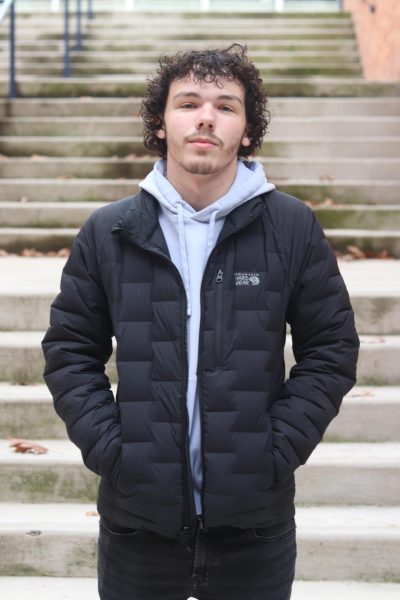“I just loved school, even though I wasn’t a straight-A student, I just loved being in the building,” said Assistant Principal for the freshman academy Andrew Muysenberg.
According to Muysenberg, the love he had for school when he was a kid, is the same thing that made him want to become a teacher.
Growing up, Muysenberg was a struggling reader. In first grade, his parents held him back because of his struggles. Muysenberg explained that he was not a perfect student, in fact, he was an average student who got mostly B’s and C’s in his classes.
Outside of the classroom, Muysenberg was involved in sports. He played football and basketball and participated in track and field at Dewitt High School. Muysenberg even said that it was an old gym teacher he had that opened his eyes to how he could become a leader amongst his peers, which led to his goal of being a teacher.
Before working at the Alternative Learning Program (ALP) for KPS, Muysenberg was the head coach of the freshman football team and an assistant coach at the JV level for Dewitt High School.
“That’s what I loved to see,” Muysenberg said. “Those kids who their freshman year, they didn’t get much playing time then you see them down the road when they’re on varsity and have a role.”
During his six years in Dewitt as a coach, Muysenberg attended college to get his degrees. Muysenberg started higher education at Lansing Community College before moving on to the University of Olivet and Western Michigan University. He earned a degree in elementary education from Olivet and a master’s degree in educational leadership from WMU.
Then Muysenberg started his career with his student teaching on the east side of Michigan before receiving his first teaching job at ALP.
“I really enjoyed it. Just stepped in at the middle of the school year and just kinda found my niche,” Muysenberg said.
The ALP had students referred to it from each of the four traditional middle schools that are a part of the KPS school district. After being recommended to the ALP program, students would attend their classes with the opportunity to return to their original middle schools if they performed well in the classroom.
“A lot of these students had things going on outside of the school, that when they were in school they weren’t able to focus, or there was family things going on, or there is a student with behavioral issues going back to elementary school.” Muysenberg continued, “so they were super-far behind academically, and now they’re in middle school. So they needed more one-on-one attention, and they were able to get that at that program.”
Even though Muysenberg had experience teaching math to middle school students, things changed from what he was used to. In 2020, Muysenberg moved on to teach math at Hillside Middle after being relocated by the district.
“I wasn’t opposed to there [Hillside] because one of my former colleagues at ALP was the assistant principal,” Muysenberg said. “I was just upset that ALP closed down because I really loved that place.”
On top of managing a new job, the new responsibilities that come with it, and having to teach in a completely different way, Muysenberg had also just welcomed a whole different world of responsibilities into his life.
“At the same time, I had a newborn daughter so she was with me at home because we couldn’t send her to daycare,” Muysenberg continued, “so she would literally be sitting on my lap while I was teaching a math lesson.”
Muysenberg found that over the course of the school year, his newborn daughter would start to become popular amongst his students. As they watched her grow, this was something Muysenberg said helped get students to log into class, even if he never intended it to be that way.
Muysenberg, like many other teachers in 2020, found it very difficult to get students engaged enough to show up to class. These struggles forced teachers to find new ways to get students excited to come to class.
“We would, some days, not even do any math work,” Muysenberg said, “just to get them into the classroom and on virtually was the first step.”
As students got ready to come back to in-person learning, and the new look it would have, Muysenberg was getting ready for a new job as an administrator.
“I was just nervous being in a bigger building and setting, not necessarily with the students, just the unknown of a bigger building,” Muysenberg said. “There’s so much more for high school, there’s the credits and all that part of high school that you don’t have to worry about when you’re in middle school teaching.”
In 2021, Muysenberg became an assistant principal. Muysenberg explained that every assistant principal at LN has a set of responsibilities: some are unique to them and some are shared amongst all assistant principals.
Every assistant principal has a list of teachers that they are responsible for when it comes to teacher evaluations. When it comes to student-based responsibilities, he is a part of the Multi-Tiered System of Support Team (MTSS) and also runs the Child Study Team. Other common tasks include things such as going to school sporting events, plays or dances. On top of all of that, Muysenberg also plays a large role in disciplinary measures for students.
“We have 18 hundred kids in the building, and there’s probably less than 50 kids that are the constant disruption,” Muysenberg said. “The frustrating part is, how do you help each of those individual students to become successful? And it’s not frustrating because of what they’re doing, it’s frustrating because it’s not just like the snap of a finger and this is what changes that behavior.”
At LN, there are a lot of things set up to help students get on the right track, such as our two character development coaches and the restorative justice coach.
“We have a lot of things here at Norrix that other high schools in the area or in the state don’t have,” Muysenberg said.
Although these programs are set in place to help students, not everyone takes advantage of them. Some students may not have the discipline to follow through with these programs and some others may have too many responsibilities outside of school. But in some cases, the student is not always at fault.
“You also have to get the parent’s support as well,” Muysenberg said, “and sometimes that’s frustrating because the parent may not be fully willing or wanting to do what they need to do. I think that’s the most frustrating part when you’re trying to work with a parent or a family and they’re not 100 percent involved or ‘in it’. That’s frustrating.”
Muysenberg is also aware that some students may look at him in a negative light, but he is not worried about it.
“Those kids that will have choice words for me in the hallway, are also the same kids that come to me and ask me for favors and stuff like that,” Muysenberg said.
He is in his third year here and is happy with his position: Assistant Principal of the Freshman Academy.
“I just love being in the building with the kids all day long,” Muysenberg said. “People always ask, ‘do you want to be the principal?’ and I’m always like ‘not really’ because being an assistant principal, you’re interacting with the students on a daily basis.”


